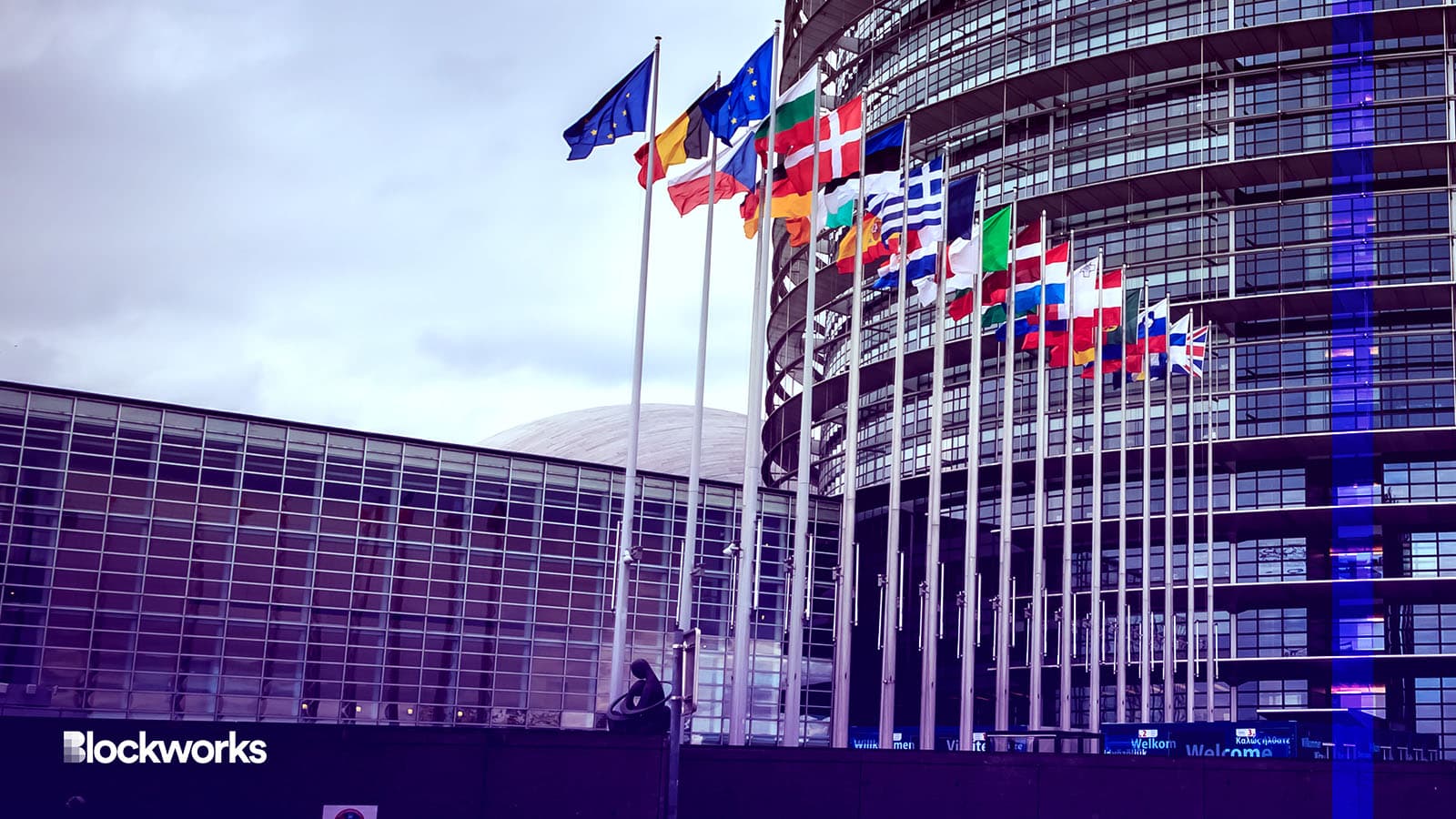MiCA Delay Until April Gives EU Crypto Firms Ample ‘Breathing Room’
Complications around the translation into the EU’s 24 official languages has led to a two-month delay for the implementation of MiCA

Source: Shutterstock / Pierre-Olivier, modified by Blockworks
The timing of the European Union’s landmark crypto bill, slated for a vote in the EU Parliament, has been pushed back from February a further two months.
Although technical in nature — rather than reflecting a policy or political disagreement — the delay will allow industry-related firms extra time to prepare.
Dubbed the Markets in Crypto Assets (MiCA), the EU Regulation seeks to lay the formal groundwork for supervisory provisions, consumer protections and environmental safeguards for digital assets. In European law, Regulations have binding legal force throughout every Member State.
Originally intended for a vote next month, the delay stems from technical translation issues into the EU’s 24 official languages after the English version was agreed upon by lawmakers in July of last year.
The European Parliament Committee on Economic and Monetary Affairs reached a preliminary deal in a 28-to-1 member vote in October. The bill’s delay follows further pushbacks in November over similar issues surrounding the technical nature of the legislation’s text.
Nick Jones, CEO of FCA-registered crypto payments app Zumo told Blockworks the delay could give EU-based crypto businesses “breathing room” to prepare for upcoming regulatory changes.
“More interesting might be the implications of what this means in the conveyor belt of other things on the EU’s agenda,” Jones said. “If there is a knock-on effect in delays in these areas as a follow-on from delays in MiCA, then that sets up an interesting interaction with the potential actions of other jurisdictions,” he said.
Specifically, MiCA seeks to establish a licensing regime for exchanges and wallet providers while ensuring stablecoin issuers have adequate reserves on hand to back redemptions. NFTs and DeFi have been deliberately excluded from MiCA’s remit, with certain activities and additional investigations to follow.
The bill’s delay also impacts the entry into force of the closely-related Transfer of Funds Regulation (TFR) — the bloc’s implementation of the Financial Action Task Force’s travel rule for digital assets, Patrick Hansen, Circle’s director of EU Strategy & Policy, tweeted Tuesday.
TFR focuses on the tracing and blocking of suspicious on-chain transactions, mostly aimed at cryptoasset service providers such as wallets, exchanges and staking platforms. The final vote on TFR has also been pushed back to April.
An earlier version of the MiCA bill had sought to ban proof-of-work-based digital assets, including bitcoin, amid industry uproar, though the provision was eventually scrapped in March 2022.
Correction, Jan 18. 2023 at 8:00 a.m. ET: Payments app Zumo is FCA-registered, not FINCA-registered.
Get the news in your inbox. Explore Blockworks newsletters:
- The Breakdown: Decoding crypto and the markets. Daily.
- 0xResearch: Alpha in your inbox. Think like an analyst.






